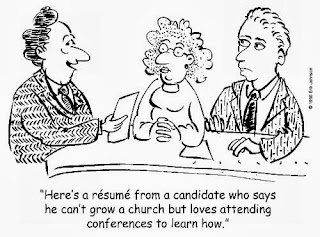As I drive through town, I see signs all over stating that a church is meeting in this or that place. Many of these are storefronts or abandoned business sites that have been rented by someone who has decided to start a church. While there are certainly no rules for who can start a church, the Bible is very clear about who is qualified to be a church leader.
There are two specific positions of leadership described in 1 Timothy:
The first is that of an overseer or bishop. Now depending on your brand of Christianity (Denomination) this could be anyone in a senior leadership role within either the local church or above the local church. For our discussion we will limit our discussion to the local church. In that case, the term Pastor* or perhaps Senior Pastor or Lead Pastor could be used. The description would certainly fit that of a senior position of leadership within the church.
The requirements? (1 Timothy 3:1-7)
- They have to be upright in their personal and professional relationships.
- They had to be mature in their faith.
- Their qualification were higher that that of other church members.
- They are responsible to lead the church (1 Timothy 5:17)
- They are to preach and teach (1 Timothy 5:17)
- They are to help the spiritually weak (1 Thessalonians 5:12-14)
- They are to care for the church i.e. the people (1 Peter 5:1-2)
- They are to ordain other leaders (1 Timothy 4:14)
- They are responsible for the day-to-day operations of the church.
- The qualifications were not as high as that of pastors and the indication was that they would not have to be as mature in their faith but certainly more so than the average Christian.
- They are to do whatever assigned tasks are given to them in the practical matters of church life and they are to whatever spiritual ministry is necessary.
One other issue that Paul addresses in 1 and 2 Timothy is that of false teachers and gives some "qualifications" for one to be considered a "false teacher":
- Using the Gospel to deceive others for selfish gain.
- Their message is binding and burdensome which was totally opposite to the liberating message of Christ.
- Their teaching or ideas are distorted, or stray away from the teaching of Christ.
Think about that this week. Are your spiritual leaders measuring up?
*The words "overseer", "elder" and "pastor" are used interchangeably to describe the same men (See Acts 20:17, 28, Titus 1:5-9, and 1 Peter 5:1-2)

No comments:
Post a Comment